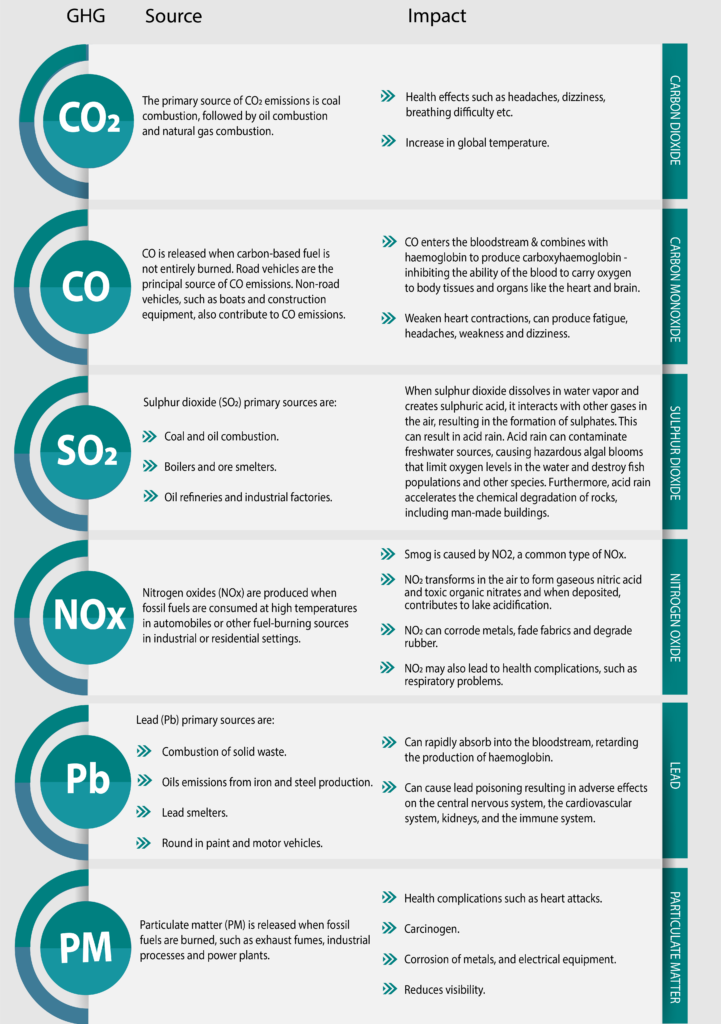Global Warming Potential, CO2 Equivalence and the Impacts of Fossil Fuel Combustion
By Celetia Sahadave, WKC Group
What is Global Warming Potential?
A greenhouse gas (GHG), as defined by the Intergovernmental Panel on Climate Change (IPCC) is a compound which has the ability to trap heat over a certain lifetime in the atmosphere. The six main GHG gases are carbon dioxide (CO2), methane (CH4), nitrous oxide (N2O), hydrofluorocarbons (HFCs), perfluorocarbons (PFCs) and sulphur hexafluoride (SF6).
The impact of these GHG gases is quantified using their Global Warming Potential (GWP), which is a measure of their heat trapping effect relative to the effects of the same weight of CO2 released over the same period of time. GHG emissions are therefore usually expressed in CO2 equivalent terms (CO2-e) to reflect the contribution of the various GHG emissions on a comparative basis.
For example, CH4 has twenty-one times the global warming impact over a 100-year period compared to CO2, and therefore it has a GWP of 21.
CO2 has a GWP of 1, regardless of the time period assessed (typically 100 years) as it is the reference gas. All gases classified as GHGs have an assigned GWP value.
The greater the GWP of a GHG, the more that particular gas heats the Earth in comparison to CO2 during the assessed time period.
What is CO2 Equivalence?
CO2-eq is a metric measure used to compare GHG emissions based on their GWP by converting the GHG to the equivalent quantity of CO2 with the respective GWP value. The CO2-eq of a gas is calculated by multiplying the gas’s tonnes by the related GWP. CO2-eq accounts for CO2 as well as all other gases including CH4, nitrous oxide, etc. Here is an example of the calculation:
Mass (in tonnes) of GHG x GWP value = CO2-eq (tonnes) of GHG
100 tonnes CH4 x 28 = 2,800 CO2-eq (tonnes) of CH4
What Are The Impacts Of Fossil Fuel Combustion?
The process of burning coal, oil, natural gas, or other fossil fuels to generate energy is known as fossil fuel combustion. According to the Intergovernmental Panel on Climate Change (IPCC), emissions from fossil fuels are the primary driver of global warming. In 2018, fossil fuels and industry accounted for 89% of worldwide CO2 emissions.
The combustion of fossil fuels produces six products. Each of these products has a different impact on the environment.



